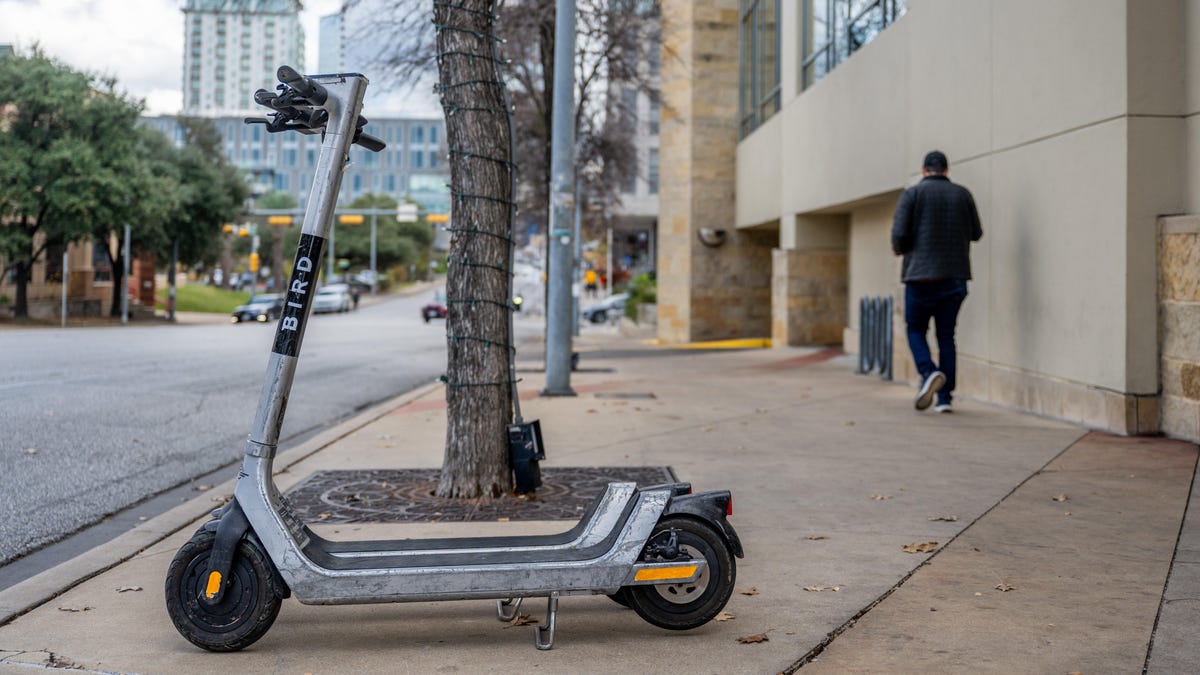Remember that era where tons of companies tried to convince us that rentable electric scooters were the future of transportation? The two-wheeled menaces started popping up on city streets like a micromobility plague, becoming the favored mode of travel for drunk folks in cities. But that dream has died. Bird Global, one of the most recognizable names in the scooter game, has filed for Chapter 11 bankruptcy, and Wired is going to take you through the whole story.
Earlier this year, Bird became the largest micromobility company in North America when it purchased Spin, one of its competitors. Back in 2018, the company was valued at $2 billion, and it saw large amounts of investment up until the COVID-19 pandemic, when ridership slumped because, obviously, no one was going out. It was kicked off the New York Stock Exchange in 2023 for failing to maintain its $15 million market cap. Then, the company filed for bankruptcy.
But there was a lot more going on behind the scenes than casual Bird riders were aware of. The company outsourced logistics to other companies, leaving these contractors to deal with problems regarding stolen or abused scooters. For a while, those contractors and freelance employees were riding high. Then, according to Wired, it began to fall apart:
Things took a darker turn in June 2021. As Bird was preparing to debut on the stock market through a regulation-minimizing scheme known as a special purpose acquisition company, or SPAC, that would value the business at $2.3 billion, fleet managers were presented with a new contract. A copy reviewed by WIRED cut payouts to fleet managers from 81 percent of the “net revenue” from each ride, down to 50 percent of the money left on each ride after Bird added four new fees not in prior contracts. (Davis, the spokesperson for Bird, described WIRED’s reporting on the contract as inaccurate but declined to specify what was considered incorrect.)
And then there were problems with Bird Two, the second generation of the initial Bird Scooter:
Its design replaced the mechanical brake of Bird’s earlier scooters with a single hydraulic brake on the back wheel. Seven current and former fleet managers say that was a flawed choice for scooters left outdoors. The brake calipers and handles would often freeze in the winter, making the brakes ineffective, they say, and in hot weather, when the scooters and the brakes were used most heavily, the seal on the brake calipers could wear down and rupture, dumping the hydraulic fluid out.
The hydraulic brake was near guaranteed to fail within several months, the seven current and former fleet managers say, but they recall that Bird asked them to only replace parts as they broke for the first month or so that the new models were on the road. In May 2021, the company announced the Bird Three scooter. This model initially had a rear hydraulic brake and a front mechanical brake, three former fleet managers say, until the design was updated. “Safety was not enforced explicitly on us. In the contract, yeah. It says, you know, you’ve got to maintain your fleet, you’re responsible for this and that. But other than that, it was very strictly numbers-driven,” one former fleet manager says. In spring 2021, about 30 to 40 of the scooters would fail every week, says another former fleet manager, who operated one of Bird’s larger fleets.
These Bird fleet managers really get into the nitty-gritty about what it was like to operate under the stressful conditions imposed by the company — and Wired tracks the story of the micromobility company from its glory days right through the pits of despair. It’s worth your time today; consider it your little holiday treat.

